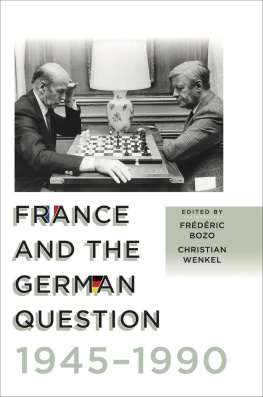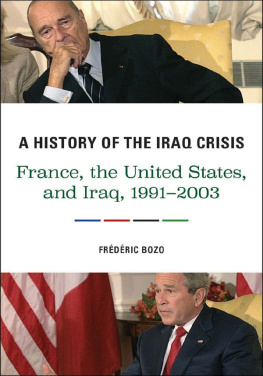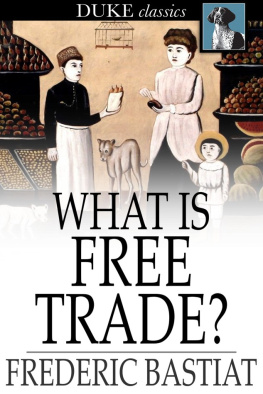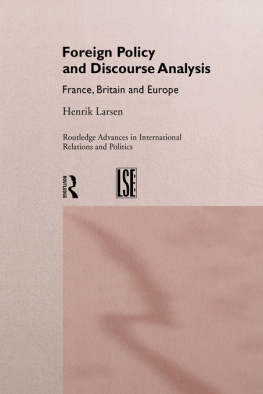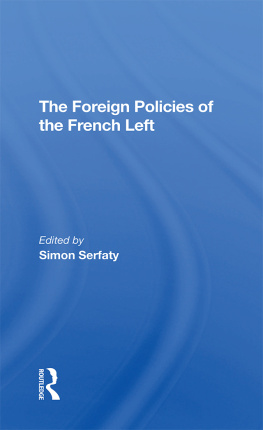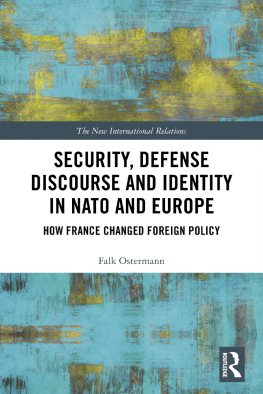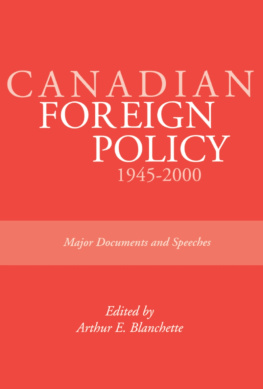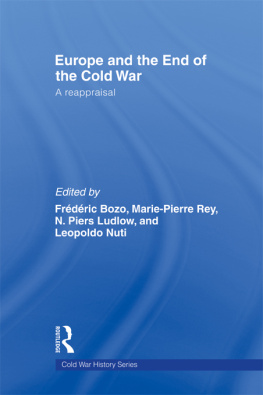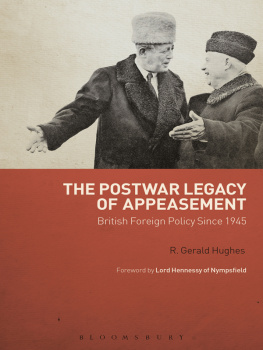French Foreign Policy since 1945
FRENCH FOREIGN POLICY SINCE 1945
An Introduction
FRDRIC BOZO
Translated by Jonathan Hensher
Published in 2016 by
Berghahn Books
www.berghahnbooks.com
English-language edition
2016 Frdric Bozo
French-language edition
2012 Flammarion, Paris
Originally published in French in 2012 as La politique trangre de la France depuis 1945
All rights reserved.
Except for the quotation of short passages for the purposes of criticism and review, no part of this book may be reproduced in any form or by any means, electronic or mechanical, including photocopying, recording, or any information storage and retrieval system now known or to be invented, without written permission of the publisher.
Library of Congress Cataloging-in-Publication Data
Names: Bozo, Frederic, author.
Title: French foreign policy since 1945 : an introduction / Frederic Bozo ; translated by Jonathan Hensher.
Other titles: Politique etrangere de la France depuis 1945. English
Description: English-language edition. | New York : Berghahn Books, 2016. | Originally published in French in 2012 as La politique etrangere de la France depuis 1945--Title page verso. | Includes bibliographical references and index.
Identifiers: LCCN 2016021776| ISBN 9781785332760 (hardback) | ISBN 9781785332777 (ebook)
Subjects: LCSH: France--Foreign relations--1945- | France--Foreign relations administration. | Cold War--Influence. | France--Politics and government--1958-
Classification: LCC DC404 .B6613 2016 | DDC 327.44--dc23
LC record available at https://lccn.loc.gov/2016021776
British Library Cataloguing in Publication Data
A catalogue record for this book is available from the British Library.
ISBN: 9781785332760 hardback
ISBN: 9781785333064 paperback
ISBN: 9781785332777 ebook
CONTENTS
TABLES
ACKNOWLEDGEMENTS
T his is the translation of a book that first appeared in French in 1997 with Editions La Dcouverte. I am grateful to Jean-Paul Piriou and Christophe Prochasson for convincing me some twenty years ago to produce a brief synthesis on a large topic. The book was published again in 2012 by Flammarion with important revisions and updates. Thanks are due to Hlne Fiamma, Pauline Kipfer and Cdric Weis for their assistance with this project. I am also grateful to Marie-Pierre Rey and Jean-Frdric Schaub for their help and advice.
The present volume is a translation of the 2012 book; the only update appears in the epilogue, covering Frances foreign policy since 2011. I have also added some recent bibliographical references. Thanks are due to Jonathan Hensher for his precise and elegant translation from the French. As ever, I am grateful to Marion Berghahn for her interest in making my work known to an English-speaking readership. At Berghahn Books, I am indebted to Chris Chappell and Jessica Murphy for their assistance.
The translation was made possible by a grant from the Centre National du Livre (CNL) and funding from the Agence Nationale de la Recherche (ANR).
Finally, I am indebted to both my students and colleagues for making possible the ongoing conversation on the ever-intriguing topic of France and its (desired or effective) role in the world.
INTRODUCTION
M any people in France and elsewhere still remember the concluding lines of the speech delivered on 14 February 2003 to the United Nations Security Council by the French foreign minister, Dominique de Villepin, during the run-up to the US-led military intervention against Saddam Husseins Iraq:
In this temple of the United Nations, we are the guardians of an ideal, the guardians of a conscience. The onerous responsibility and the immense honor that fall to us must lead us to give priority to disarmament in peace. And it is an old country, France, from an old continent like mine, Europe, which tells you this today.... It believes in our ability to construct, together, a better world.
The speech something almost unheard of in this usually solemn chamber elicited spontaneous applause from those present. According to some, it was lyrical; for others, it was over the top; yet it is hard for commentators not to see in it an echo albeit a rather muffled one of the epic struggles of the Gaullist era: the last time France had faced up to an all-powerful United States so squarely was the speech given by President Charles de Gaulle in Phnom Penh in September 1966, in which the General denounced the error of the United States in waging war in Vietnam. The recent Iraq episode thus resonates with the long history of French foreign policy, and in so doing highlights one of its recurrent themes: the ambition some would say the pretension shown by France, despite having lost its status as a great power, in seeking to hold onto a certain rank on the world stage.
Ambition, or pretension? The man who rallied the Free French on 18 June 1940 not only embodied these two terms, but he also theorized them: It is because we are no longer a great power that we need a grand policy, because if we do not have a grand policy, given that we are no longer a great power, we will no longer be anything at all.1 This brutally honest appraisal, given by de Gaulle towards the end of his life, sums up the problem faced by French foreign policy for more than half a century: that of balancing the countrys aspirations to a major role on the international stage against a realistic assessment of its actual capabilities.
This reality and this ambition are not necessarily doomed to contradiction: the aim of a countrys foreign policy which is both a discourse on and the actual conduct of foreign affairs aims precisely to reconcile them. This book, which can only claim to be a brief introduction to the subject, seeks merely to sketch a broad outline of the history of French foreign policy, to locate its guiding principles and reveal its inherent logic. It also aims to uncover its principal constants: not only the quest for rank but also, inextricably linked to this, the pursuit of the European project and the search for a world order, which are the two other perennial themes in French foreign policy the former because the extra leverage afforded by Europe has long provided Frances only hope of continuing to carry any weight on the world stage, and the latter because only a stable and balanced international system can guarantee the interests of France and of Europe. Yet this book also seeks to tease out the still unresolved dilemmas and contradictions of French foreign policy, torn as it is between the competing needs of Frances national project, its European ambitions, its place in the Western world and its universalist ideals.
The historians task, however, is not to freeze reality within timeless, unchanging paradigms. What follows is therefore above all the narrative of a shifting dialectic sometimes favourable, sometimes less so between Frances ambitions and the reality of the means at its disposal. While de Gaulle, having started with absolutely nothing on 18 June 1940, achieved the almost miraculous feat of carving out a place for his country alongside the victors of 1945 and making France a great power once again, he had in reality re-established a status that existed only on paper. After de Gaulle left power in 1946, the Fourth Republic believed it truly possessed this great power status, and so France was able to put off the redefinition of its international role until the country was forced to do so by the eventual realization of its powerlessness which resulted, most obviously but not exclusively, from decolonization. After returning to power in 1958 de Gaulle would effectuate this redefinition of Frances international role and succeed in creating, together with the foundation of the Fifth Republic, not merely a policy of grandeur, but a truly grand policy whose ambition was no less than the reconsideration of the superpower bloc system and the creation of a new alternative to the order of Yalta.




